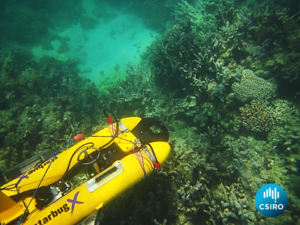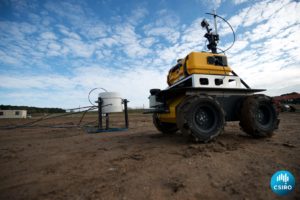NATO – Autonomous vehicles using fuel cells
“Improving efficiency and operational range in low-power unmanned vehicles through the use of hybrid fuel-cell power systems (IUFCV)” is a project co-funded by the Science Program for Peace and Security (SPS) of NATO, which aims to promote scientific cooperation and research between NATO members and third countries.
In a consortium with INTA (National Institute for Aerospace Technology, Spain) and the University of Seville, the Robotics and Autonomous System Group at CSIRO Data61 has been working on the IUFCV project since 2016.
The project aims to design, develop and evaluate hybrid power systems, based on batteries and fuel cells, suitable for underwater, ground and aerial unmanned vehicle systems.
The proposed hybrid power systems are designed and developed according to the specifications of three existing unmanned platforms, one Autonomous Underwater Vehicle (AUV) from CSIRO; and two Unmanned Ground Vehicles (UGVs), one from CSIRO and another from INTA.
- Starbug – Credits: CSIRO Oceans & Atmosphere
- Husky
These power systems will be integrated and evaluated in real operating conditions, with collaboration from external end-users.
According to Dr Emili Hernandez from CSIRO’s Data61, “the key benefits of the project are increased runtime endurance for AGVs (7 hours +) and AUVs (10 hours +); reduced recharging time for hydrogen compressed gas (less than 5 min); availability of the power system higher than 95%; and the application of existing Regulation, Codes and Standards (RCS) related to the integration of hydrogen technologies and portable fuel cells to ensure safety in robotics applications and to detect potential gaps which could impact the commercialisation of these technologies.
The Robotics and Autonomous System Group is extremely well positioned to deliver this type of project given its highly skilled team which includes world class researchers and engineers who are experts in autonomous vehicles and systems integration.
Having the ability to demonstrate a suite of technologies in autonomous vehicles applications, the Group is open to partnerships and collaborations for research, development, and commercialisation.
For more information, contact Dr Emili Hernandez.


